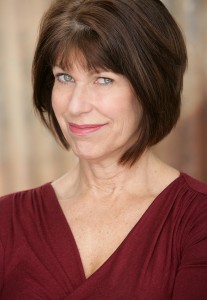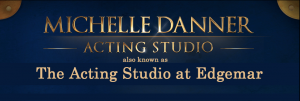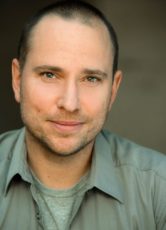Commercial Audition Tips: What Casting Directors Want You To Know
August 29, 2021
Flash cut to 2021. You can find casting directors dancing with their kids on TikTok, posting pictures of their dog on Instagram, or doling out valuable audition advice on Twitter. Casting directors are telling you exactly how to book more jobs — but you have to listen.
When it comes to casting calls, commercial auditions can be some of the most frustrating ones to attend. You don’t get much time or material to prepare. It’s rare to have more than a sentence or two of background information on your character. And sometimes there’s nothing more to do than walk into the room, say your name, do a 360-degree turn, and leave!
Let’s get rid of some of the mystery behind commercial auditions and go straight to the source — the casting directors themselves. Check out these commercial audition tips and bits of inspirational acting advice from some of the biggest names in casting.
Connect With the Casting Director
It doesn’t matter if it’s your first commercial audition or your 500th, showing the casting director that you’re a real, relatable human makes you instantly likable.
Veteran casting director Amy Jo Berman says, “When you make a real, human, personal connection with a casting director, that’s memorable. That makes us stop and notice you. We like that. Casting directors are human beings too. Connect.
Here are a few simple suggestions you can try:
- Ask them how they’re doing.
- Comment on something they’re wearing.
- Make an observation about what’s going on in the room.
- Talk to them the same way you would to another actor or a friend.”
These are such simple things but they can make or break your entire audition. Casting sees dozens of actors a day. They not only remember the actors who gave the best performances, but also the ones that were enjoyable to be around.
In today’s world of virtual auditions, this can be tougher. But that’s why connection matters even more. Offer up a warm hello that radiates right through the screen.
Always do your best to feel out the situation. If casting seems stressed or they’re running behind schedule, keep it brief. Otherwise, take a moment to give a genuine compliment or start a cheerful conversation before jumping into “the work.”
Always Memorize Your Lines
Bella Hibbs of Good Faith Casting shares three fantastic reasons why you should always memorize the material.
- If you’re thinking of the words, you’re not thinking of the character.
- Your performance will be more believable.
- Your competition will be memorized.
That last one is so good!
Next time you’re tempted to just wing it, remember these three reasons why you should memorize your material for commercial auditions.
Deliver Before the Deadline
Most actors have completely stepped up their self tape game over the past year. Casting directors are overwhelmingly impressed with the quality of the performances they’re receiving.
Renita Gale of Renita Casting shares tons of valuable tips for commercial and virtual auditions on her Instagram.
“When actors ask if it really helps to get their self tape in before the deadline? I mean, no pressure, but the answer is 100% YES!”
So if you’ve been procrastinating on making that self tape, this is your sign to go do it right now!
Another bit of advice from Renita, “Landscape-mode on your camera for self tape auditions, ALWAYS….unless otherwise instructed.”
Read the Instructions
This next tip comes from DK Casting. This is a good motto to live by for commercial auditions and every other aspect of life!
“Don’t make assumptions, and simply follow instructions. This will leave a much better impression than ignoring what you’re told!”
Whether it’s an in-person commercial audition, virtual audition, or a self tape you should read EVERYTHING sent to you. Start with the casting call so you can understand the other roles and learn about the team working on the commercial. Then make sure to read the audition notice and check for attachments. Assistants are busy and sometimes they forget to send sides. Don’t be afraid to reach out and ask for material if it seems like something is missing.
Commercial Audition Inspiration & Advice
Casting director Danielle Eskinazi’s Twitter is a must-follow for all actors. She’s regularly tweeting bits of inspiration, actionable advice, and a behind-the-scenes peek at her life.
Here are a few of her recent pearls of wisdom.
“Listen to your instincts, fine-tune it, make notice of it. That’s your survival guide.”
“Exist in your dreams as you are. Always be your authentic self. That’s what we want, what we look for, anybody else is not you. Make sense?”
“Here we go… TGIF! Never ever give up hope, prayers, your fortitude, your path, your dreams. Never give up in this business. Eventually. no’s turn into yes and you’re off. Keep up your strength, it’s not over till You say so!”
Danielle will get you pumped up and ready to crush your next commercial audition. Who doesn’t need a little bit of daily motivation?
The Early Bird…
Paladino Casting coming in with the reminder we all needed.
“Log into your callback link 5-10 mins before your scheduled time, in case there are new directions/adjustments on setups. Just like you would arrive early to an in-person audition!”
Show up early, even for virtual auditions. Things change at the last minute and you don’t want to be scrambling before a big commercial audition callback.
More Self Tape & Virtual Audition Tips
Virtual auditions aren’t going away any time soon, so lots of casting directors are giving out self tape advice these days.
Erica S. Bream’s Twitter is full of fantastic tips. She’s a theatrical CD, but a lot of the advice she gives also translates to commercial auditions.
“Actors: one of the biggest (and most consistent) issues I’ve seen in self tapes is PACE. We don’t want you to rush or miss important moments, but if the scene moves slower than normal conversational pace, it can feel melodramatic/boring/un-funny/other non-delightful adjective.”
“Actors, 90% of the time, your reader is going too slow. Remind them: they may have a good chunk (or the lion’s share) of dialogue, but it’s not *their* tape. Encourage them to move through their lines quicker w/out blowing through important moments/beats that you want to explore.”
“It can be a fantastic benefit of self taping that you get to select your reader. (I know it can also be stressful. I’m not discounting the effort it takes to find someone to help you.) But in choosing your own reader, you should consider whether or not they can take direction.”
It’s easy to get frustrated when you’ve been called in for tons of commercial auditions but never booked one. A big part of your job as an actor is overcoming that frustration and continuing to work on your craft.
An easy way to do that is to follow casting directors on social media. They want you to succeed and that’s why they’re sharing valuable info. You never know when that one bit of advice might be the breakthrough you needed to land your dream role.
Want to get your acting career started? Sign up or login to Casting Frontier and start auditioning today!
Related articles:
3 Famous Acting Techniques
7 Tricks To Help You Get Into Character
Jennifer Hudson on Portraying Aretha Franklin in ‘Respect’
Josh Gad on the Audition that Changed His Life
January 11, 2021
Josh Gad almost gave up on his acting dreams when The 25th Annual Putnam County Spelling Bee on Broadway invited him to audition in 2005. In an interview with Off Camera, the 39-year-old actor recalls the memorable audition and the role that served as his big break into the business.
Gad is most famous for portraying the lovable voice of the happy snowman Olaf in Disney’s Frozen. He also received a Tony Award nomination for his portrayal of Elder Arnold Cunningham in the Broadway musical The Book of Mormon.
Early Life
Josh always loved to sing, make people laugh, and pretend to be other people. “I knew exactly what I wanted to do, and there was no discouraging me from doing that thing,” he remembers. Originally, the Florida native wanted to perform on Broadway, but as he grew older, he found a new goal: to become a cast member of Saturday Night Live. So for three years, he sent audition tapes to SNL with high hopes only to receive respectful letters of rejection. “But when I let go of ‘That’s got to be my destiny, that’s it or it’s nothing,’ things started to happen,” Josh recounts.
From Dreams to Reality
Just as the Carnegie Mellon University graduate seriously contemplated giving up his acting dreams, a San Francisco tour of The 25th Annual Putnam County Spelling Bee invited him to audition for a musical. Josh admitted in a Brains of Minerva interview, “I have no work, and yet I said no. It was ballsy, it was egotistical, it was egomaniacal, and stupid probably.”
Soon thereafter, Gad received wind from a friend that the Spelling Bee producers were now very interested in casting him as a replacement for the Broadway original cast member, Don Fogler who would go on to win the 2005 Tony Award for his performance in the role. However, they were still miffed Josh passed on their previous San Francisco offer. This revelation woke the young actor up, so to speak, and so he had his manager reach out to the production, urging them to give Josh a second chance.
Gad describes how the audition went that fateful day: “I show up and there’s one other guy. His credits are all Broadway, and I have no credits.”
Josh’s competition was doing quite well based on the laughter emanating from the room and the audition running long. “So he comes out and he’s looking confident,” Josh recalls.
Taking Things Seriously
Hoping to calm his nerves, Gad cracked a joke in front of the intimidatingly large group of producers before starting his audition. But the director halted the performance just minutes in, and like a school principal, asked to have a moment with Josh. Gad recalls:
“He says, ‘I don’t think you take this seriously.’
I go, ‘Excuse me?’
He goes, ‘I don’t think you actually really take this seriously.’
‘Why are you saying that?’ He goes, ‘Because you come out here, you’re telling a joke.’
And I go, ‘Please forgive me. Fifteen people are about to make the most important decision of my life. I’m walking out more nervous than I’ve ever been in my entire life. I figure I have two choices: I can either break the ice, make a joke or I can projectile vomit all over you and your colleagues. So forgive me if I chose the former. You know, you can question anything you want about me, but I will not let you question my work ethic. I have done nothing but devote myself to my craft for four years. I’ve done nothing but fight to be here. If I don’t get this role on my merits, fine. But I love what I do, and I take it very seriously.”
Watch the clip to hear the zinger at the end.
It is easy to think you can accurately assess how your audition is being received by casting professionals. However, Josh’s story serves as a reminder that you really just never know what they are searching for or why.
Want to get your acting career started? Sign up or login to Casting Frontier and start auditioning today!
Related articles:
Anya Taylor-Joy Overwhelmed by ‘The Queen’s Gambit’ Popularity
Words of Wisdom: Audrey Helps Actors
6 Tips To Memorize Lines
4 Tips to Stand Out in Auditions When You’re New
February 17, 2020
Wendy Alane Wright is a former talent agent and talent manager in Hollywood. She currently works as an acting career coach and is the author of several books that offer step-by-step guidelines for aspiring actors. Secrets of a Hollywood Talent Manager—How to Break Into the Business is written for Los Angeles actors, How to Be a Star Right Where You Are is for actors who live anywhere but LA, and How to Get Your Kids into TV, Film, Print & Commercials Without Spending a Fortune is intended for parents.
In her How to Stand Out in Auditions YouTube video, Wright speaks to performers who are just starting out, sharing four tips on how to shine brightly in the audition room.
1. Be on time.
Yes, it may sound basic, but punctuality is actually very important in show business. Arriving on time “makes you stand out in a good way—like a professional,” Wright insists. Of course, sometimes things happen that hold you up despite your best efforts—an accident on the 405 freeway, a flat tire, or perhaps a zombie apocalypse. But a pro will go to lengths to make sure those instances are minimized as much as possible. Punctuality is a sign that you value others and you respect their time; it demonstrates that you’re dependable—which is essential should you book the job and need to be a team player on set; it boosts your confidence when you know you’re on top of things; and when you’re on time—or better yet, 15 minutes early—you can take a breath and go over your lines so you can put your best foot forward in the audition room.
2. Memorize your sides.
Wright encourages actors to learn their lines—really know them inside and out. She insists doing so shows “You’re prepared. That makes you stand out in auditions.” (It should be noted that there’s some wiggle room here. Although casting directors do want actors to be familiar with the material, many will excuse actors glancing at the script if needed as long as they then look back up and give an engaging performance.)
3. Make interesting choices.
If the script calls for a specific emotion such as anger, Wright implores actors to dig a little deeper into their own experiences and imaginations to avoid giving a predictable, safe reading. “Human beings are complicated,” she insists. “When the casting directors are watching the same thing over and over and over and over, [a nuanced delivery] stands out because it’s different.” She refers actors to a book titled Building a Character by the legendary Russian stage actor and director Constantin Stanislavski. The book is the second of three volumes that make up his Acting Trilogy (An Actor Prepares is the first, and Creating a Role is the third). Building a Character discusses the external techniques of acting including the way a performer uses his or her body, movement, diction, singing, expression, and control. It focuses on detailed strategies and exercises to build a strong foundation for any given character, including vocal patterns, timing, and rhythm. “If you do the work as an actor, you’ll go deeper than what it just says on the page, and you’ll study human behavior,” Wright says.
Take your acting career seriously.
Love acting and pursue it passionately. Wright asserts, “If it’s really your passion … it’s more than just wanting to be an actor, it’s more than just having a pretty picture with some classes on the back; it’s about becoming a great actor.” This commitment to your craft, to the profession, and as a collaborator will make you stand out, even before you’ve worked out all the kinks. When you’re grateful for the opportunities to do the work you love, others will notice you for the right reasons.
Want to get your acting career started? Sign up or login to Casting Frontier and start auditioning today!
Related articles:
How to Create a Great Self-Tape Audition
Actors: Get Cast Without an Agent in Los Angeles
Brad Pitt and other Acting Greats on the Fear of Public Speaking
Tips For Kids To Win Auditions
August 14, 2016
You know the expression “kids say the darndest things”? This is where the spontaneous, organic personality of the child can win them the job. Interview questions are almost always asked when a child auditions for a commercial, TV show or film. There is no copy for them to learn, no scene to play. You’re just asked random questions by the session director, casting director or director. The goal of this is to observe the child’s personality.
I dreaded this type of audition, and for years I never booked one. I focused obsessively on the questions, and agonized over my answers.
One day, a session director told me that the director and clients often watch these auditions with the volume turned completely off. Immediately, I realized the purpose and potential of the random question. It’s all about our personality—how we come across on camera.
Using this nugget of information, I changed my whole approach to this audition.
Since it’s your personality that they are looking for, I needed something to talk about that turns me on, that I am passionate about, something I can discuss fluently without worrying or running out of specific details.
Now I always talk about one of three subjects that make my eyes and face light up: hiking, my son, or my dog, Sparky. To sail through the interview question audition with ease, you must approach it the same way: The child should have three things that he or she is passionate about, subjects that they can talk about easily and effortlessly and in detail. The details let’s the child’s personality shines through. Here are some ideas:
- Your favorite game or at home activity
- An anecdote about a family member
- A story about your pet
- Foods you love or hate
When asked a question, find a quick way to segue or transition to talking about one of your favorite subjects.
Keep your answers brief, but detailed and specific. The more details and specifics the child can add, the more the personality comes out! The truth is, they are just trying to see your personality on camera.
Beware of three taboo subjects—avoid this at all cost.
Acting
They want you to be an actor and a skilled one but do not want to hear about it. They secretly think they are discovering you in the local farmers’ market and putting you in their commercial campaign.
Politics
Politics are just too controversial and should be avoided at all costs. Even if you’re running for senate, leave it alone! This should not be a problem for most kids anyway.
Religion
Anything having to do with religion is generally taboo.
Kids who can relax and just get chatting about one of their subjects or a funny anecdote always are remembered, as being memorable is the key helping you get booked for jobs
The beauty about this technique is that you never have to think about the answer because you already know it.
Practice this technique with some of these commonly asked questions and see how it works for you:
- What was your favorite vacation?
- Do you have any hobbies?
- Any plans for the summer?
- What’s your favorite subject in school?
- What is your favorite ice cream flavor?
- What do you do when you get home?
- What kind of foods you love?
- What kind of foods you hate?
- Who is the most important person in your life?
- What is your most treasured possession?
- Which is your favorite TV show?
- If you had a super power, what would it be?
- If you could meet anyone dead or alive, who would it be?
The answers should never sound prepared or rehearsed, but spontaneous and honest. Why? Because kids do say the darndest things!
Judy Kain has been a full-time actress for over 35 years, appearing in over 80 television and film roles and 375 commercials. Judy teaches her successful audition technique to thousands of students at her Los Angeles studio, Keep it Real Acting. Judy has won multiple awards, including Backstage Magazine’s 2015 Readers’ Choice Award for “Favorite Audition Teacher.” Her latest book – I Booked It!: The Commercial Actor’s Handbook – teaches readers practical techniques for booking acting jobs. Available now at Amazon and through her website, keepitrealacting.com.
![]()
Availability & The Working Actor
July 19, 2016
Are you available? Wait. Before you answer, you might want to read the entire blog.
Every actor I meet tells me they are 100% available to audition and to work. But then when some of them get the call, they are either not available at all or need a reschedule. Sometimes this is possible but most of the time the casting director needs you when he or she makes the request. A lot of parts are cast in one session. And why look at tape when I have a dozen amazing choices standing right in front of me in the flesh? We can adjust them. We can pair them up. We can even mix and match. Most importantly, we can chat a little and get to know you for thirty seconds. Thirty very important seconds.
You’re not available for my projects unless you live here. Here’s why.
I used to travel to Scottsdale, Arizona regularly to conduct classes and seminars. Each time I stood in front of the class they almost unanimously stated that they could be as easy to hire as actors from Los Angeles. That was a pretty unrealistic promise but since some of them worked for airlines I gave it a shot. Some of them actually showed up on time and were very professional. The trouble popped up when I needed them to come out two days later for the callback or two weeks later to read for another role in a different episode of my TV series. That first trip out was the charm but the L.A. actor shows up over and over without difficulty.
And then there is the issue of the holidays.
The problem of availability just came up on a feature I was producing last December. I needed to hire a couple of actors at the last minute. They wouldn’t need to audition. They just had to show up. Shouldn’t be a problem, right? But I was looking on December 18th for them to work on December 21st. I reached out to several actors and no one was available. They were either already out of town or would be by the work date. Of course I found my actors eventually, but I thought it was a shame that some actors missed out on a paying role in a union feature because they chose not to be available in December.
When producers or casting directors need you to show up on the set, the only response should be “where and when?” The actors I reach out to are the ones that have proven to be on call year-round. I’m not mad at the other actors, but I can’t hire them.
You are NOT available if you are in a play without understudies. I cannot hire you and guarantee a stop time. Why would I? I have thousands of actors who are available 24/7. Whether it’s a studio film, a network series or a tiny indie, you must be available or you are wasting our time coming in. This happens way too often and it damages relationships between actors and casting directors as well as those between casting directors and agents.
You are not available if you can’t be in my office in an hour. Many of you have jobs that aren’t as conducive to auditions as you want to believe. You have to rush to every audition. You are not at your best when you are there and you then rush back to work. If this is you, you need to find a new job asap or you made the trip out here for nothing.
You’re not available unless you bought a one-way ticket to Los Angeles. You cannot move home, move back to L.A., move back home and repeat the cycle over and over expecting this to work for an acting career. The majority of actors who leave L.A. do not return. The one thing they all have in common is that they are not working actors in film and television today. Move here. Stay here.
Don’t say you are available unless you are available 365 days a year, 24 hours a day. As I learn every time I cast a project, there are actors out there who just don’t seem to know their own availability.
Mark Sikes began his casting career in 1992 for Academy Award-winning filmmaker Roger Corman. In the past 24 years, he has cast over 100 films as well as television series, commercials and web series. He has cast projects for top directors such as Tobe Hooper, Mark Jones and Luke Greenfield and many others. Domestically, he as cast films in Los Angeles as well as in Texas, Ohio, Massachusetts, Virginia and multiple projects in Colorado.
Want to get your acting career started? Sign up or login to Casting Frontier and start auditioning today!
Related articles:
Audition Terms and Their Definitions
Actor Spotlight Parker Queenan: Booking a Role Requires Patience
Advice for Actors from Voice Casting Director Linda Lamontagne
5 Tools For Actors to Stay Sharp
April 28, 2023
As an actor, you are always training regardless of whether you are seasoned or just starting out. You want to say, “I have a craft.” You are always in the pursuit of sharpening your tools. You are looking to keep your instrument alive, responding, open to stimuli.
Actors depend on having an instrument that works. You need to exercise it. Here are five basic essential things you have to work on constantly.
1. Script analysis.
Pick up plays and screenplays and break them down. Understand the script analysis of it from A to Z. Make a list of events—relationships, wants, conflicts and obstacles—and look for what is not obvious. That’s good script analysis. Look for the deeper meaning of things. Go out on a limb in your analysis. What could be the extra layers of complexities that exist?
Those discoveries will lead you to make choices that are off-kilter. Again, the more you train yourself to do this exercise, the easier it becomes to do this intricate work.
2. Creating characters.
You should constantly be thinking about creating different characters. Keep writing backstories for different characters. Create profiles, composites and explore their physicality. That is always the way into discovering who they are. What are the most controversial events that could have happened to them? Read lots of biographies. It will inspire you to find twists and turns. Interview folks, ask them about their lives and uncover their secrets. It will give you ideas!
3. Improvising.
Yes, you have to be able to improvise and think fast on your feet. To be able to put it in your own words makes you able to own the material you are working on on a deeper level. Also, knowing you can improve the scene makes you fearless—a feeling that you could handle anything. You can have a lot of fun getting out of your head in that way and completely forgetting what the next moment is. You really have to trust your impulses and channel them in the most creative way.
4. Knowing the words.
Work on committing lines to memory. If someone comes to see you perform in a play, remember that cliché question they ask you backstage, “How did you learn all those lines?” But all joking aside, for some actors, memorizing can be a challenge. The breaking down of the script, knowing who the character is, and improvising the dialogue before committing to the words that are written can very much help you with this tool.
Again, it’s a muscle that you have to train. Memorize a poem, a song, a monologue, or a scene every week. Once you understand the intent of the line, say it and make it yours over and over again. Your body has muscle memory; it remembers.
Although improvisation is wonderful, if Aaron Sorkin or David Mamet wrote that script, you will need to get it perfect word for word.
5. Knowing how to work in front of the camera.
Yes, practice makes perfect, but the moment a camera is filming you, everything is different. Learn to watch yourself and learn from it. It’s important to understand if the choices you are making are reading.
Look at what your body is doing; look at what your face is doing; see how you take direction and implement the adjustments quickly. As you try out different choices, find out which one is the strongest and which one plays the best.
Every tool mentioned above is a muscle that needs to be worked on consistently in order to strengthen your craft.
Once you have that foundation, repetition will deepen your work as an actor. So roll up your sleeves and get to work!
Michelle Danner is a renowned acting coach who works with A-List Actors privately as well as on set. Michelle trained with Stella Adler and Uta Hagen and was voted favorite acting coach by Backstage readers and featured coaching Andy Richter on The Tonight Show with Conan O’Brien. Michelle has two books, The Daily Ritual and The Golden Box. Please find more about Michelle and her acting classes at michelledanner.com.
Want to get your acting career started? Sign up or login to Casting Frontier and start auditioning today!
Related articles:
How to Use Casting Frontier’s Agent and Talent Finder Tools
7 Tricks To Help You Get Into Character
Tips for Aspiring Actors from Casting Directors Diane Heery and Jason Loftus







